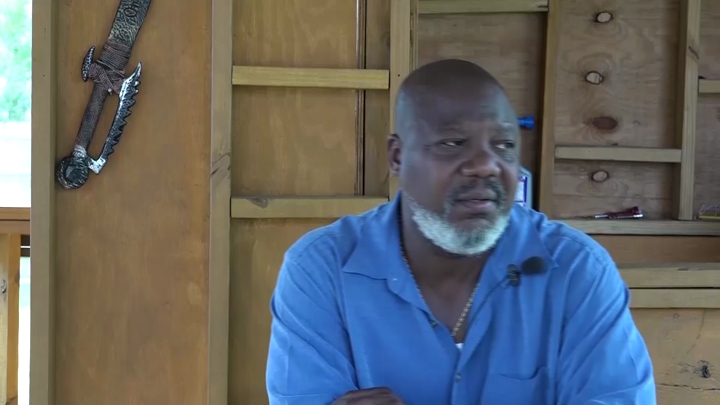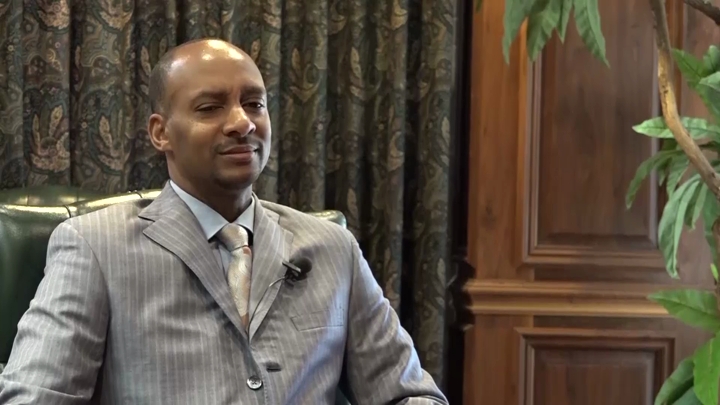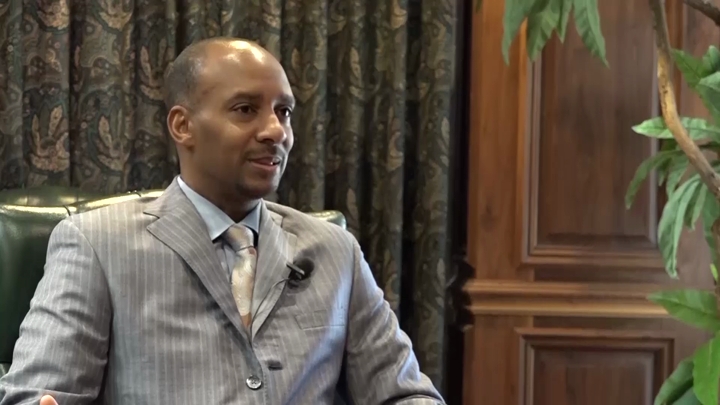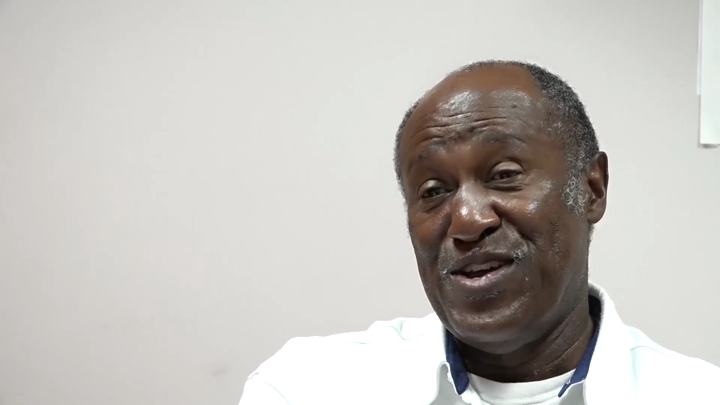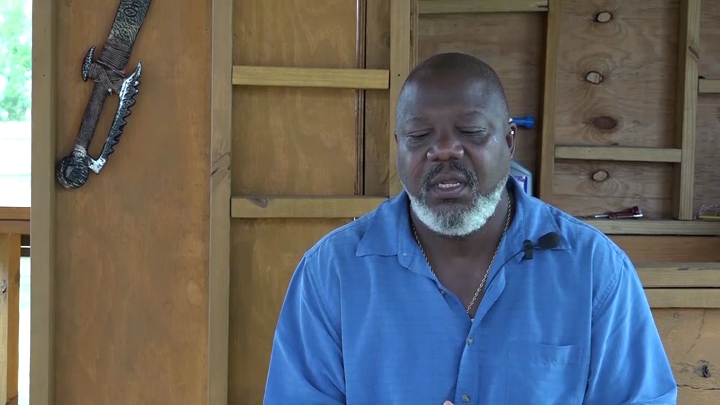Payne / Race Relations
sign up or sign in to add/edit transcript
Interviewer: So, I’m curious about when you first became aware of race or racial difference or racial issues in your community and if you can describe that? If that was maybe hearing your parent’s talk about it or seeing something. Payne: Well, we saw obviously—I didn’t understand why we had to travel in packs to go through Vidor. That didn’t make sense to me. I didn’t really get it. Not that my parents hid it from me. I could watch TV. I could see the racial tensions that were taking place. I didn’t really—and then when I played sports, everyone I played against, they were white. Subconsciously, I saw whites as competition because that’s who I played against. We very seldom played another black school. So, they were just competition. I didn’t really see it as race. Until the ninth grade when we had, Don and I, god I still remember his name—we had the little spat on the floor. Yeah, we were fighting over a ball and the ball went between my legs and he ran between my legs to get the ball and I closed my legs. I flipped him over. He flipped me over. We both got techs. Ok, that happens, but when the crowd started throwing popcorn and making all these racial comments, then I started getting angry because I was just competing. It was really for me, it was high school when I really started seeing the differences in my generation. When we would go to academic decathlon events and we would walk in and everybody would look at us kind of funny. I knew we were the only black school there, but I knew we were good. I really wasn’t worried about the competition part. They may have been worried, but we were fine. We knew we were going to perform well. We were doing this play called “The River Niger,” and I remember some students looking at the billboard and they were laughing because they were going—because they were, this was some white students, they were thinking the play was called “The River Nigger.” I’m like, “No, that’s two g’s baby. Get your education right. It’s Niger.” It just showed their ignorance, not ours. We performed and did well, actually won. It just showed their ignorance. It was kind of funny. It was sad, actually, probably not funny. It was sad. See, you’re too dumb to even understand what it is. Learn to spell and then you would understand that that’s not nigger. It’s Niger. Then you don’t even understand the meaning behind what you think it is. We understood the meaning and so, our community, not just the blacks, all the minority communities, we empowered ourselves so much we felt like we were going to be successful whatever we would do. Like, for instance, I grew up—I could square dance. I could do the Cotton-Eyed Joe. I could—I knew country songs. I knew rap songs. I knew everything and so whatever environment you put me in, I could handle it. Now, I bring you to my community and you stick out like a sore thumb. I’m still comfortable in yours, but you’re not comfortable in mine. Who’s more empowered? I feel like I’m empowered and that was pretty much—so, I learned. We were in gym class. They taught us how to square dance. They taught us how to Cotton-Eyed Joe. They taught us all the country western, two stepping, all the other stuff. I doubt very seriously, in the other schools on the other side of town, they learned what we learned in our community. So, I felt more empowered because no matter what we got exposed to, I could handle it. Pretty much our attitude.
| Interview | Interview with James Payne |
| Subjects | Family › Childhood Experiences |
| Community Organizations | |
| Race Relations | |
| Race Relations › Black-White Race Relations | |
| Education | |
| Race Relations › Racial Slurs | |
| Family › Parents | |
| Tags | High School Sports |
| sign up or sign in to add/edit tags | |
| Interview date | 2016-06-16 |
| Interview source | CRBB Summer 2016 |
| Interviewees | Payne, James |
| Interviewers | Grevious, Danielle |
| Duration | 00:04:45 |
| Citation | "Race Relations," from James Payne oral history interview with Danielle Grevious, June 16, 2016, Beaumont, Civil Rights in Black and Brown Interview Database, https://crbb.tcu.edu/clips/3160/race-relations-4, accessed March 05, 2026 |


